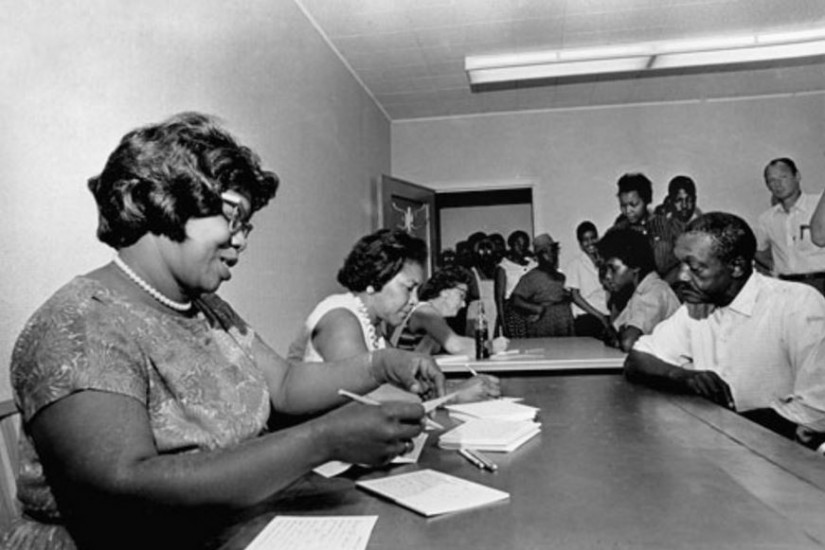When white supremacists and neo-Nazis rallied in Charlottesville in August 2017, a gathering that led to the tragic death of Heather Heyer, initial responses, even in conservative circles, were of widespread condemnation. And yet, in the intervening hours and days, a counternarrative brewed that painted the Left as equally violent and threatening. This narrative, of course, was stoked by President Trump’s false equivalency. While the response of the President was certainly unprecedented, the inclination to highlight violence on the Left, and especially violence from black Americans, is not. In the mid 1960s, as black activists engaged in a decidedly nonviolent struggle for justice, that same tactic appears.
In Americus, a small city in Southwest Georgia, tensions had been running high for weeks. That summer of 1965, nonviolent Christian activists had been organizing Americus’ black citizens, holding mass meetings, planning a grocery store boycott, registering people to vote, and marching down the streets. State troopers, Klansmen, and concerned white housewives watched nervously as ministers led thousands of black citizens through the streets. The city felt like a tinderbox. Then, on the night of July 28, 1965, it exploded.
That night peaceful protesters, many of them kids, assembled in front of the Sumter County courthouse in downtown Americus. They gathered in solidarity with the wife of a local minister, Mamie Campbell, who had been arrested the previous day trying to vote. Led by the Rev. J.R. Campbell, Mamie’s husband, and other clergy, as well as some volunteers from the Student Nonviolent Coordinating Committee (SNCC) and the Southern Christian Leadership Conference (SCLC), the group had conducted a mass meeting at Allen Chapel AME, marched to the courthouse, sang, prayed, and planned to spend the night on the lawn in protest. Around midnight, it started to rain. Then, cutting through the humidity and drizzle and cicada chorus, the sound of a shotgun.
